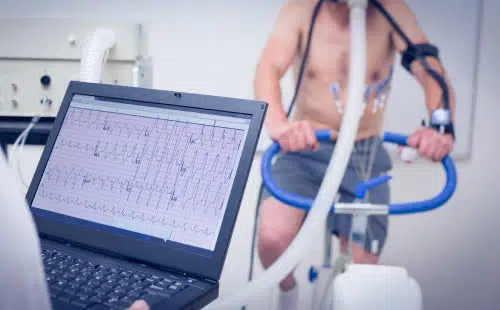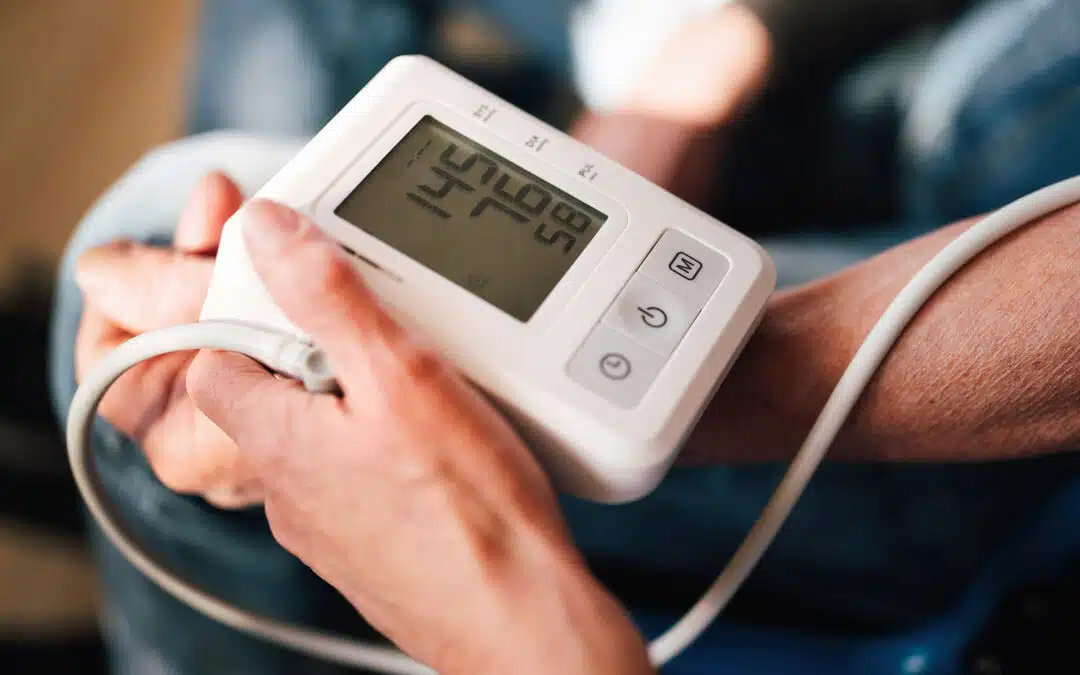Cardiac stress tests are a great tool for determining the health of your heart and coronary arteries. A stress test can help estimate your risk of a future heart attack, your ability to perform exercise, the safety of exercise, and to diagnose you with Coronary Artery Disease (also called Coronary Heart Disease).
Your doctor may recommend one if you begin experiencing certain concerning symptoms or signs for a heart condition. Such symptoms may include:
- Shortness of breath
- Chest pains
- Faintness during exercise
- A fluttering feeling in your chest during exercise
- Irregular heartbeat
How Do I Prepare for a Heart Stress Test?
- You can drink water, but do not eat anything 4 hours prior to the test
- Wear comfortable clothing and walking/running shoes
- Do not eat or drink any food or beverages with caffeine (This also includes decaffeinated tea/coffee, chocolate, or “caffeine-free” soda.)
- Take all medication except for beta-blockers and diabetic medications (ask your doctor to make sure any regular medication you take is okay)
- Bring your inhaler(s)
- Ask for special instructions if you are diabetic
If you are unable to exercise, we can use medications to test your heart.
How is a Stress Test Done?
There are multiple types of stress tests.
For exercise stress tests with electrocardiogram (EKG) monitoring, you walk on a treadmill while we monitor your EKG. Sticky patches remain attached to your skin to monitor your heart rhythm during the test. It starts as a gentle walk and every 3 minutes, the treadmill increases speed and incline. For some low risk patients, especially those who are able to exercise for long periods, this is the entire test.
For certain patients who are able to exercise, but for whom ECG monitoring is not enough, we perform an exercise based nuclear stress test. The procedure is a little different. First, we take pictures of your heart with a safe radioactive tracer and a special camera. After, we have you exercise on the treadmill as above. At peak exercise, you receive another injection and additional pictures of your heart are taken. By comparing the pictures of your heart before and after exercise, we can see how your heart reacts normally to stress. This test typically takes less than 3 hours from start to finish.
For patients who cannot exercise, we perform a pharmacologic (medicine) nuclear stress test. A medication is used to recreate the effects of exercise on the heart. This medicine is given through an IV to increase blood flow to your heart. It is possible and common to feel warm or shortness of breath for a short amount of time with the medication although the sensation is brief, the drug is safe, and we have medicines to reverse the sensation. Just like with the exercise based nuclear stress test, we take pictures of the heart before and after the stress by giving a safe radioactive tracer and using a special camera. Nuclear stress tests are very safe with minimal levels of radiation, and help your doctor provide a significantly more accurate diagnosis. Again, this test typically takes less than 3 hours from start to finish.
What does a stress test tell me and my doctor?
A stress test tells you how well your heart muscles respond to stress. Nuclear stress tests have the extra benefit of telling how much blood flow those muscles are receiving. These results can tell your doctor about your risk of having coronary artery disease, your risk of heart attack in the next year, and your risk with surgeries in the near future. Based on your test results, your doctor may recommend changes to improve your blood pressure, cholesterol, and other risk factors which increase your risk of having coronary artery disease and a heart attack. Your doctor may also recommend additional testing including a heart catheterization.
What are the risks of a stress test?
A stress test is very safe and we perform many stress tests per day. Running on a treadmill for a stress test is not more dangerous than doing the same amount of running at home or in the park. However, in certain patients with heart disease, there is a very small risk of heart attack with exercise or receiving medication to stress the heart. The likelihood of heart attack and/or death as a result of a stress test is less than 0.04%. You will be monitored the entire time and we can stop the test at any time. Your safety is our number one priority.
At Vital Heart and Vein, your cardiovascular health is our passion and specialty. We offer treadmill, nuclear, and cardiac PET scan stress tests, as well as a host of other diagnostic testing and procedures. If you are concerned about your heart health, have heart and vein issues in your family, or simply want to take your preventative care more seriously, you’ve come to the right place. Contact us today to learn more about having a heart stress test procedure and make an appointment at one of our locations!




